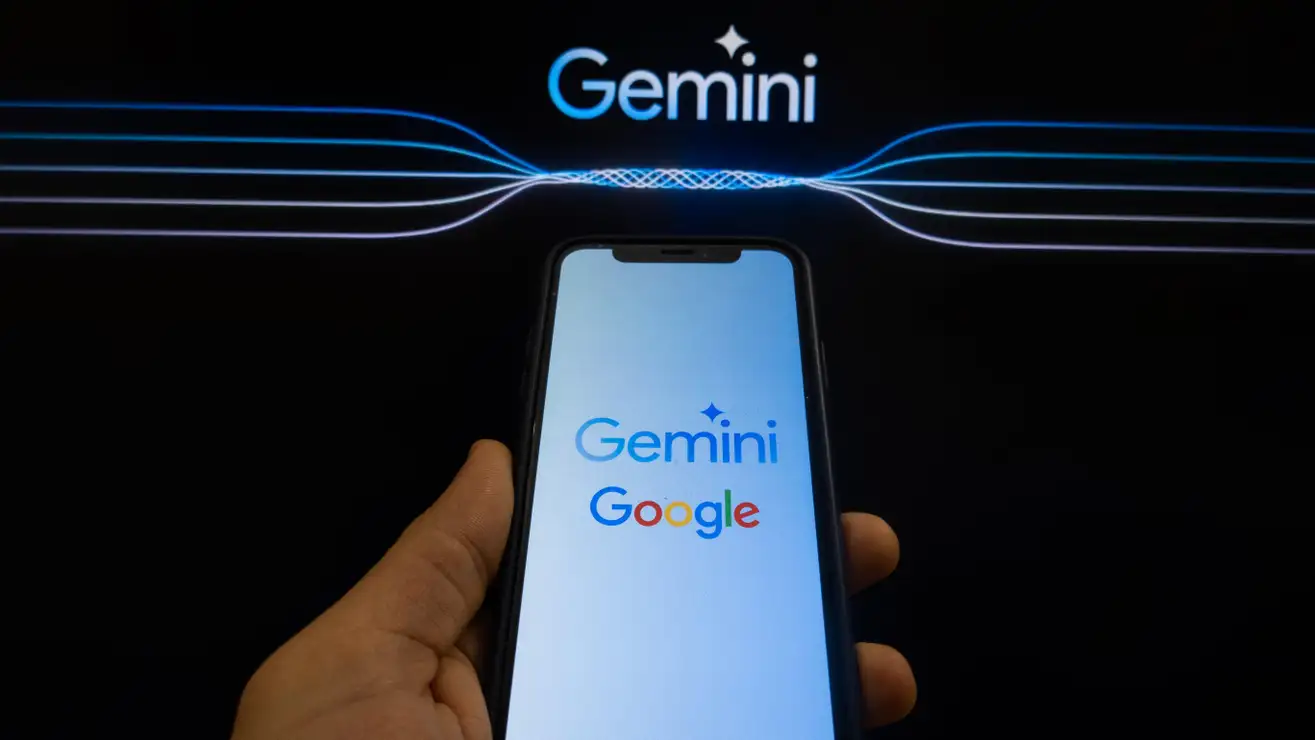|
|
 |
Device manufacturers are putting a huge burden on parents to monitor settings and protect their kids.
- Girard Kelly, Head of Privacy, Common Sense Media
|
|
Welcome to Snippets 🤖 Opinions abound following the release of Gemini, Google's rebranded AI chatbot (formerly known as Bard). For some, the bot represents a feasible replacement to traditional search engines, while others argue ChatGPT is still the performant winner.
Either way, privacy experts are concerned about Gemini's shall we say relaxed data collection and processing practices, following a revelation that the bot saves user conversations for up to three years.
In other news, the CPPA received the greenlight to begin CPRA enforcement, Australian regulators are moving to criminalize doxxing, The Markup released a new guide on protecting your privacy while gaming, and more.
|
|
|
|
|
Google Gemini keeps conversation for three years
|
 |
|
Lorenzo Di Cola/NurPhoto via Getty Images
|
Conversations with Gemini, Google’s AI chatbot (formerly Bard), may be retained for up to three years, even if a user chooses to delete all their information from the app.
|
- Gemini’s privacy policy explains that data such as device type and location may also be retained, as they are stored separately from a user’s Google account.
- Google stated personal data is only used to improve Gemini’s functionality, is anonymized by removing identifying information, and will not be sold to data brokers.
- Regardless, experts argue removing a user’s name from a dataset doesn’t fully anonymize the data and that it's possible Gemini data could be obtained by law enforcement.
|
|
|
|
|
|
|
CPRA Compliance Checklist for 2024 ✅
|
|
The California Privacy Rights Act (CPRA) is in effect and, after a surprise overturn of the 2023 enforcement delay, the California Privacy Protection Agency can start enforcement immediately.
To help your company prepare, Brandon Wiebe, Transcend's General Counsel & Head of Privacy, outlines a detailed checklist for 2024 CPRA compliance in the guide below.
|
|
|
|
|
|
|
|
Appeals Court greenlights CPRA enforcement
|
 |
|
|
A California Appellate court has given the California Privacy Protection Agency (CPPA) a greenlight to begin enforcing the first set of regulations under the California Privacy Rights Act (CPRA), ending a nearly eight-month delay.
|
- The court’s decision overturned a 2023 ruling that delayed enforcement until one year after regulations were finalized, which would have been March 29, 2024.
- In their decision to overturn the 2023 ruling, the appeals court noted a lack of “explicit and forceful language” mandating the waiting period.
- Beyond a delay, the court also noted other ways to protect business interests, including the CPPA’s commitment to consider “good-faith efforts to comply” while investigating alleged offenses.
|
|
|
|
|
|
|
|
Australia moves to make doxxing a criminal offense
|
 |
|
MARTIN OLLMAN/GETTY IMAGES
|
Australian regulators are moving to criminalize doxxing, the practice of publishing an individual’s private information online with malicious intent, after Free-Palestine activists leaked transcripts from a WhatsApp group chat about Gaza.
|
- The proposed federal legislation, which is expected to pass with bipartisan support, will introduce jail time to offenders, but does offer exceptions in the case of public interest journalism.
- Though the doxxing incident was met with widespread criticism, the government’s response has divided public opinion.
- Free-Palestine activists claim all private details were redacted, noting that, “What was shared was a leaked chat transcript demonstrating the coordinated efforts of many working to silence support for Palestinian liberation."
|
|
|
|
|
|
|
|
- Online retailer Temu was hit with lawsuit alleging “unscrupulous” data collection.
- The FTC warns tech companies against secretive privacy policy changes.
- Does HIPAA really protect health data?
- What happens when an AI model is “100% responsible?”
- Hackers find new victims with stalkerware TheTruthSpy.
|
|
|
|
|
|
States start moving on neural privacy regulation
|
 |
|
Mauricio Lima/AFP via Getty Images
|
As neurotechnology continues to make its way into consumer products, state legislatures are working to protect consumers from neural data misuse, with Colorado and Minnesota actively developing new bills.
|
- Neurotechnology has found a broad range of applications, from sleep monitoring to facilitating communication for the paralyzed. But with minimal federal oversight, privacy advocates are worried about unregulated product development.
- Colorado and Minnesota’s bills paint a picture of what legislators consider to be the biggest red flags, prompting the industry to develop standards before formal regulation is passed.
- Though neural device data is protected by HIPAA and the FDA regulates implants, experts believe comprehensive federal action is the best long-term solution.
|
|
|
|
|
|
|
|
A new guide to protect child safety in online gaming
|
 |
|
Gabriel Hongsdusit
|
With Big Tech, data brokers, and advertisers allying with game developers and console manufacturers to optimize data collection on gaming platforms, The Markup has published a guide to help gamers and their parents better navigate privacy protections.
|
- Though 84% of Americans are concerned about tracking on gaming platforms, adjusting privacy protections on the average console can be quite complex.
- Plus, stricter privacy protections can quickly become obsolete due to constant updates.
- Developed by wading through hidden settings and complex privacy policies, The Markup’s guide helps users avoid common traps and identify the most important controls to adjust.
- Tips include disconnecting the console from social media and setting up restricted gaming accounts for children, in order to disable in-game purchases and communication with strangers.
|
|
|
|
|
|
|
How Transcend is expanding privacy's field of vision 💫
|
|
Today, we’re experiencing a seismic shift in privacy, where regulatory headwinds are running headlong into the technical complexities of enterprise data collection and processing.
To rise to this rapidly transforming landscape, Transcend is thrilled to open the first known role for a Field Chief Privacy Officer! Brandon Wiebe, Transcend's General Counsel & Head of Privacy, shares more about this landmark role below.
|
|
|
|
|
|
|
|
|
Snippets is delivered to your inbox every Thursday morning by Transcend. We're the platform that helps companies put privacy on autopilot by making it easy to encode privacy across an entire tech stack. Learn more.
|
|
|
|
You received this email because you subscribed to Snippets. Did someone forward this email to you? Head over to Transcend to get your very own free subscription! Curated in San Francisco by Transcend.
|
|
|
|
|
|